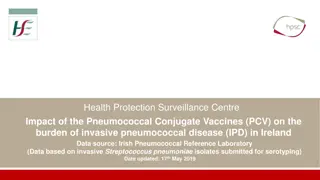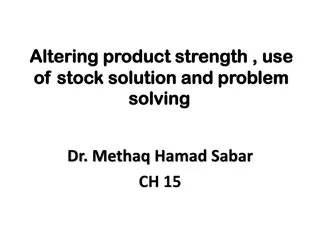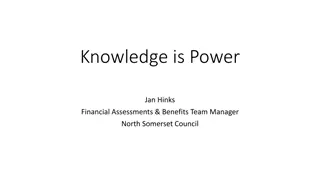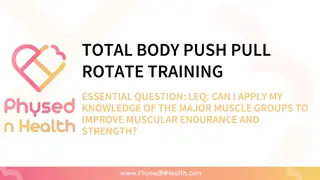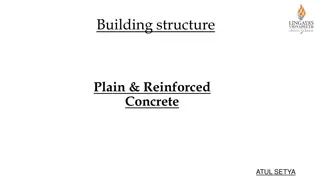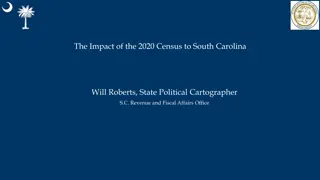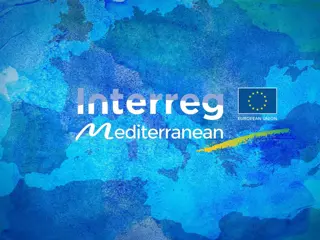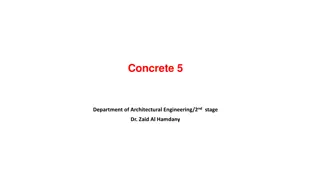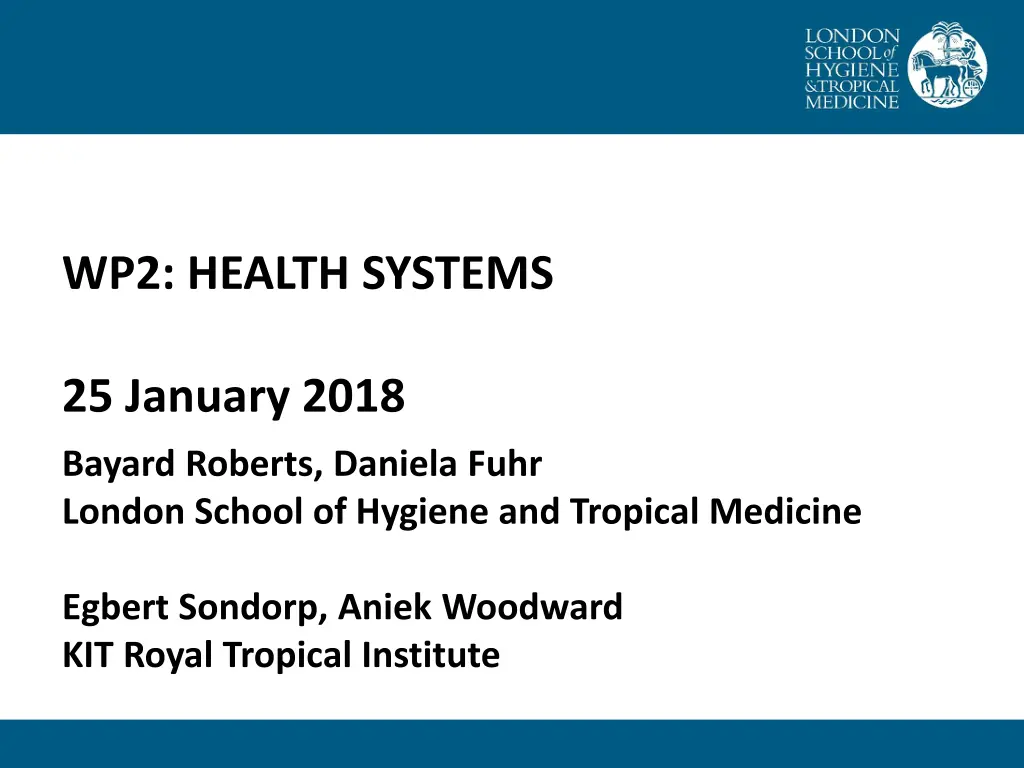
Analyzing Health System Responsiveness to Mental Health Needs of Refugees in European and LAMIC Countries
Explore the responsiveness of health systems in addressing mental health needs of refugees in European and LAMIC countries bordering Syria. The study aims to analyze contextual factors influencing system responsiveness and assess the impact of low-intensity PM+ programs on mental health care. Activities include rapid appraisals, qualitative research, and data analysis from multiple sources.
Download Presentation

Please find below an Image/Link to download the presentation.
The content on the website is provided AS IS for your information and personal use only. It may not be sold, licensed, or shared on other websites without obtaining consent from the author. If you encounter any issues during the download, it is possible that the publisher has removed the file from their server.
You are allowed to download the files provided on this website for personal or commercial use, subject to the condition that they are used lawfully. All files are the property of their respective owners.
The content on the website is provided AS IS for your information and personal use only. It may not be sold, licensed, or shared on other websites without obtaining consent from the author.
E N D
Presentation Transcript
WP2: HEALTH SYSTEMS 25 January 2018 Bayard Roberts, Daniela Fuhr London School of Hygiene and Tropical Medicine Egbert Sondorp, Aniek Woodward KIT Royal Tropical Institute
WP2 Aim and objectives Aim To analyse the responsiveness of health systems to the scaling-up of PM+ across European host countries and LAMIC bordering Syria in addressing the mental health needs of refugees. To analyse the responsiveness of health systems across European host countries and LMIC bordering Syria in addressing the mental health care needs of refugees. To examine how contextual factors such as socio-economic, cultural, and political-economy factors influence the responsiveness of health systems to the mental health care needs of refugees in the project countries. To explore how the scaling-up of the low-intensity PM+ programmes can support health system responsiveness to the mental health care needs of refugees in the project countries To compare the responsiveness before and after implementation of the PM+ programmes of the health systems of European and LAMI countries bordering Syria Objective 1 Objective 2 Objective 3 Objective 4
WP2: Overview of main activities Rapid appraisals of health system responsiveness Desk reviews Qualitative research Cross-sectional community-level surveys (two countries) Analysis of quantitative data from other WPs In-depth qualitative research Theory of Change workshops Repository/database of relevant literature
Progress overview: Conceptual work Health system analysis framework
Responsiveness domains Choice Autonomy Prompt attention Responsiveness Communication Confidence Access to family and community support Quality of basic amenities Dignity
Progress overview: Rapid appraisals Aim of rapid appraisals: To assess the responsiveness of the health care system to the psychosocial needs of Syrian refugees, based on an assessment of the way Syrian refugees with mental health needs navigate the health care system Method: collection and triangulation of multiple data sources, including: desk-based reviews of existing evidence, reports, policies, guidelines and data through systematic methodology. semi-structured interviews and focus groups with purposively selected key stakeholders in the project countries (e.g. refugees, health/social workers, health system and mental health experts (e.g. MoH, NGOs, UN, academics).
Progress overview: Rapid appraisals RA activities Adapting RA methodology for MH systems analysis Developing research protocol & conceptual approach Gaining ethics approval Desk study Literature reviews for all project countries Data extraction for all project countries Completion of Annex Inputs for all project countries Analyze qualitative data available from partners Write narrative reviews for all project countries Field work Contact WP leads to get support Logistics & finances in place Finalize RA topic guides, translation and training Conduct qualitative interviews in all project countries Status
Progress overview: Cross-sectional surveys Survey activities Status Aim: To collect evidence on MHPSS needs and access to MHPSS care among Syrian refugees in two study countries. Develop research protocol Gaining ethics approval: LSHTM Turkey Germany Field work: Identify country research partners Logistics & finances in place Finalise sampling design & instrument Conduct piloting Data collection Turkey Data collection Germany Data cleaning Data analysis Method: Community-level cross sectional surveys. Sultanbeyli municipality of Istanbul, Turkey; and in Leipzig, Germany Straight random sampling
Dissemination Presentations: LSHTM Centre for Evaluation Seminar, March 2017 ESTSS, Odense, June 2017 European Congress of Psychology, Amsterdam, July 2017 Submission for Health Systems Research Conference (Liverpool, October 2018)
Activities for the next 12 months Writing-up rapid appraisals (reports, briefs, publications) & dissemination Develop repository/database of relevant literature for each study country (place on STRENGTHS website) Complete survey in Turkey; finalize survey arrangements in Germany Write survey papers and policy briefs (Turkey first) & dissemination Prepare procedures and methods for analysis of quantitative data from partners Hold Theory of Change workshops Prepare procedures for in-depth qualitative research
WP2 needs Rapid appraisals: Checking our collation of data/literature and RA reports Sharing relevant qualitative data already collected by partners Working with us for additional qualitative data collection (if required) Analysis of quantitative data from other WPs For data related to access/utilisation In-depth qualitative research (2019) Support development of topic guides Support us with data collection and dissemination
Theory of Change (ToC) A participatory planning process used in the development, implementation and evaluation of complex health interventions
ToC: A theory driven approach to enhance the MRC framework MRC framework, 2008
Long term outcome Resources Identification Treatment Impact Adequate ongoing programme management and clinical supervision Intervention coordinator (IC) in post Co-morbid psychosis/suicide risk mothers receive specialist treatment in tertiary services (viii) In antenatal and immunization clinics, IFs able to: (ii) 1.Recruit and conduct regular supportive supervision of Peer Support Workers (PSWs) 2.Identify mothers with depression using screening tools and appropriately refer them for treatment (iii) 3.Conduct awareness raising in hospital clinics Nurses encourage mothers to participate in programme Intervention facilitators (IF) in post. Hospital clinic nurses aware of programme. Primary outcome: 1.Improved clinical outcomes for mothers with depression treated by program (ix) Secondary outcomes: 2.Improved social functioning (x) 3.Improved child health outcomes (e.g. adequate breast feeding, improvement in infant weight) Recovering No improvement after 3 sessions Mothers receive counselling as intended for the required duration (vi) Reduction in treatment gap for maternal depression in district CHWs able to: 1.Help the IFs identify, recruit and supervise PSWs 2.Conduct community awareness raising Community Health Workers (CHWs) aware of programme (i) PSWs in post & integrated into hospital system (iv) PSWs able to: 1.Deliver counselling 2.Appropriately refer mothers 3.Conduct community awareness raising (v) Ceiling of accountabilit y Community is aware of peer counselling and mothers are willing to seek help and receive treatment (vii) Key Specialist care/ tertiary services Community Health Workers (CHWs) Intervention needed Assumption A Intervention co- ordinator(IC) Example of ToC map Thinking Healthy Programme- Peer-delivered Peer Support Workers (PSWs) 1 Intervention a Rationale Intervention Facilitator (IF), nurses Community (i ) Indicator
Theory of Change Constructing a ToC map is particularly effective when: it is undertaken as early in intervention or programme development as possible it involves a range of key stakeholders in an interactive workshop BUT: ToC is a participatory planning process which can be used for development, implementation and evaluation of complex interventions
Relevance for STRENGHTS? ToC can assist in: - Planning the process of scaling up in the different study countries - Planning the implementation of a (national) strategy within a broader health systems framework (e.g. STRENGHTS partners in Lebanon) - Developing complex interventions as part of formative research To be discussed: Potential value and purpose of ToC in STRENGHTS








